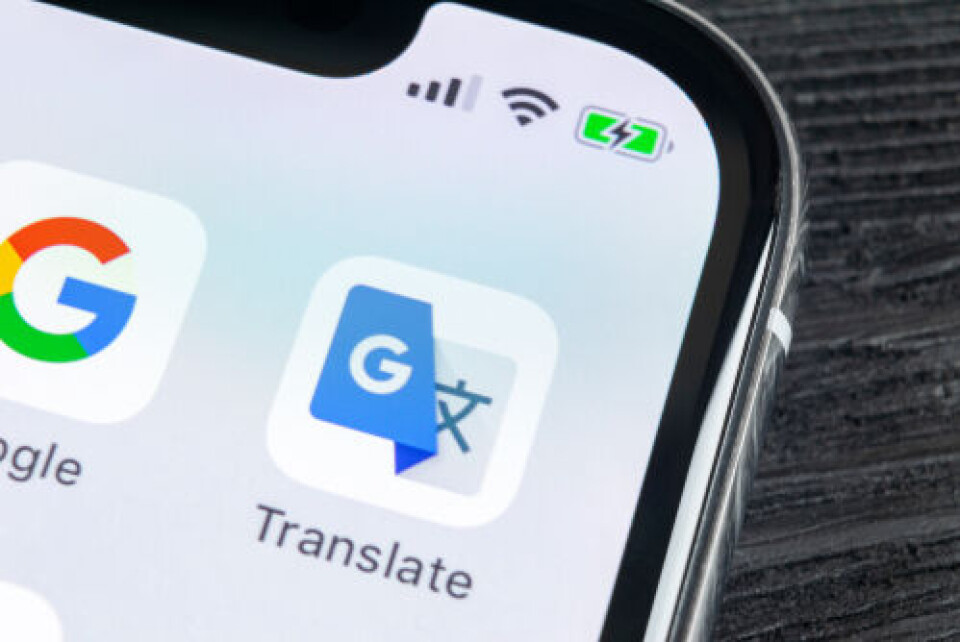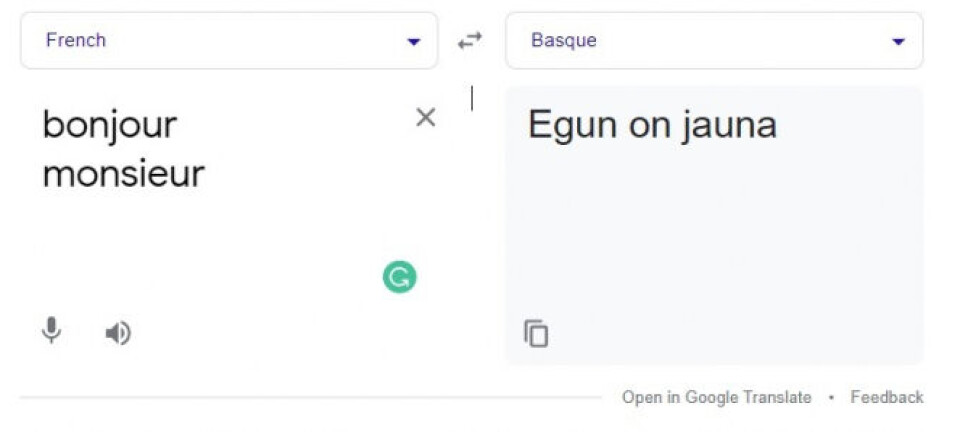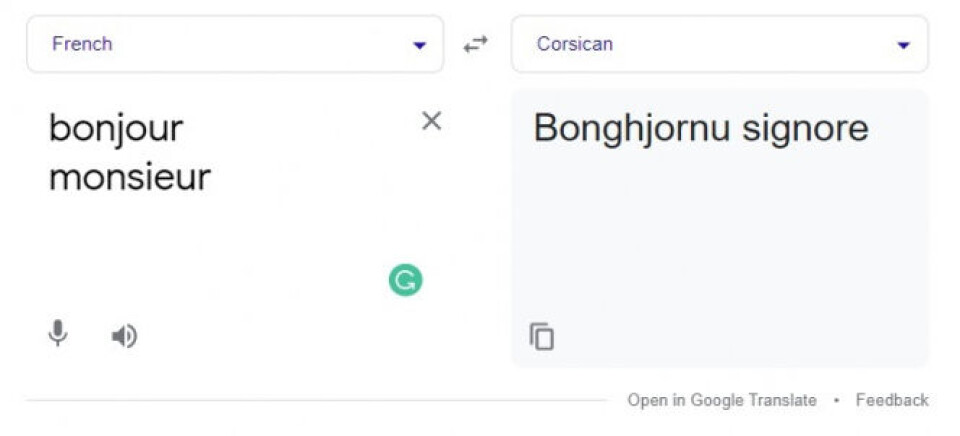-
Why your accent should not hold you back when speaking French
Columnist Nick Inman notes that some French people are harsh judges of foreign speakers
-
Learning French: what does sacquer mean and when should it be used?
You may be able to guess one of the meanings behind this informal term that sounds just like an English equivalent
-
Learning French: the meaning of ça va le faire
Plus, what other ways can ça be used?
Basque and Corsica languages now included in Google Translate software
The online tool now has more than 130 languages available. However, Breton is still yet to join the list

Online translation tool Google Translate now includes the French regional languages Basque and Corsican, among 33 new languages added to the service this week.
The new move is part of the tech giant’s ambition to include 100 languages in its Google Translate tool. It has now exceeded this, with 133 languages now available.
Its new additions also included Yiddish, Hawaiian, Kurdish, Luxembourgish, Zulu, and Sudanese.

Google Translate now includes Basque. Photo credit: Google.com / Screenshot
The tool now has an unparalleled selection of languages to choose from, including Northern Sotho, Yoruba, Xhosa, Nepali, Tamil, Swahili, Uzbek, Georgian, and Javanese.
Yet, despite the new additions from the Basque Country and Corsica, as well as Catalan, Breton is still yet to join the list. Occitan is not there either.

Google Translate can now process Corsican. Photo credit: Google.com / Screenshot
And while Google is still working on adding new tongues, it has said that it is still pushing updates to its original languages, including French, German and English, to improve the context and accuracy of translations.
It also announced continued work on Google Lens, the camera tool that can recognise and identify objects, and translate text on signs and pictures almost instantly.
Google Translate first launched in 2006 and claims to have 500 million users daily, who use it for text, documents, and even full websites.
Read also: DeepL, Reverso: Which French-English translation app do you use?
However, some of our readers have told us that they prefer other translators, including DeepL and Reverso, especially for common languages like English and French, as they are deemed more accurate.
Related articles
New French regional languages law is 'politically historic'
France adopts historic law to protect its regional languages
Brittany votes to ask for autonomy from France after Corsica statement
























